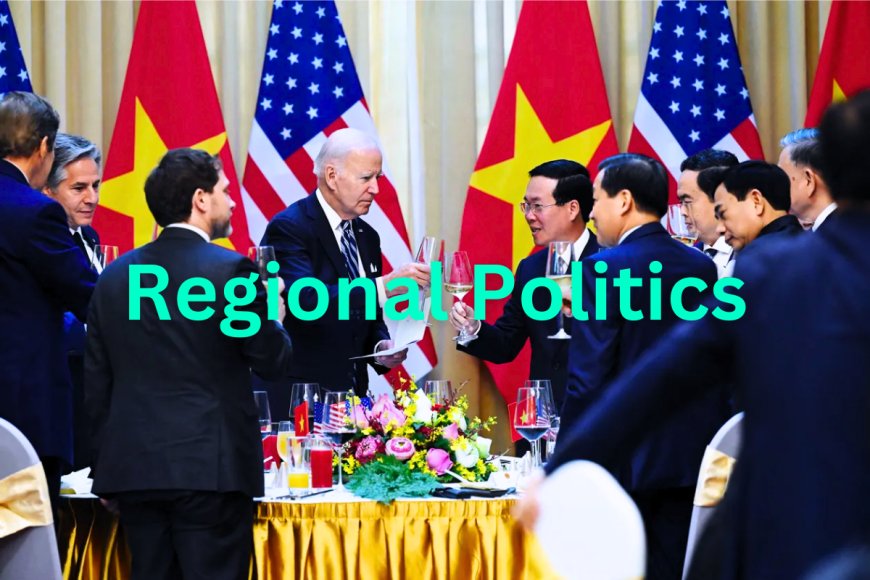Regional Politics: Navigating the Complex Landscape
Regional Politics

Politics is a dynamic field that extends beyond national borders. Regional politics, often overlooked, plays a crucial role in shaping the socio-economic and cultural landscape of specific areas. In this article, we will delve into the intricacies of regional politics, exploring its significance, key players, challenges, and the broader impact on both local and global levels.
Introduction
Understanding regional politics requires a grasp of the intricate web of relationships and power dynamics that influence decision-making at the local level. Regional politics encompasses a wide array of issues, from governance structures to cultural identities, making it a nuanced and fascinating area of study.
Importance of Regional Politics
Regional politics holds immense importance as it directly impacts the lives of individuals within specific geographical areas. Local policies and decisions shape the day-to-day experiences of communities, making regional politics a cornerstone of effective governance.
Impact on Local Communities
Local leaders have a direct influence on issues such as education, healthcare, and infrastructure, significantly affecting the well-being of the people they serve.
Influence on National Policies
Regional politics doesn't operate in isolation; it often serves as a testing ground for policies that may later be implemented on a national scale. The success or failure of regional initiatives can influence broader political strategies.
Key Players in Regional Politics
To comprehend regional politics fully, it's essential to identify the key players involved. From established political figures and parties to grassroots movements, a variety of actors contribute to the shaping of regional landscapes.
Political Figures and Parties
Prominent figures and political parties often dominate the regional political scene, shaping the discourse and agenda within their territories.
Grassroots Movements
However, the influence of grassroots movements should not be underestimated. These movements, driven by local communities, can bring about significant change and challenge established political norms.
Challenges in Regional Politics
While regional politics has its merits, it also faces various challenges that can hinder effective governance and decision-making.
Power Struggles
Competing interests and power struggles can create tensions within regions, leading to difficulties in implementing cohesive policies.
Ethnic and Cultural Diversity
The diverse nature of regions often presents challenges in fostering unity and addressing the needs of different ethnic and cultural groups.
Regional Politics and Socio-Economic Development
Examining the link between regional politics and socio-economic development is crucial for understanding the overall progress of a region.
Case Studies of Successful Regions
Exploring case studies of regions that have successfully navigated political challenges and achieved development goals can offer valuable insights.
Challenges Hindering Development
On the flip side, understanding the challenges that hinder development in certain regions provides a holistic view of the complexities involved.
Role of Media in Regional Politics
Media plays a pivotal role in shaping public opinion and influencing political narratives, making it a key player in regional politics.
Shaping Public Opinion
Media outlets have the power to shape how regional issues are perceived, influencing public sentiment and political discourse.
Reporting and Analysis
Objective reporting and in-depth analysis are crucial for fostering an informed citizenry, enabling them to actively participate in regional politics.
The Future of Regional Politics
As we look ahead, it's essential to examine the potential trends and developments that may shape the future of regional politics.
Emerging Trends
Technological advancements, changing demographics, and evolving global dynamics are all factors that contribute to emerging trends in regional politics.
Potential Changes and Developments
Anticipating potential changes in governance structures, political ideologies, and citizen engagement can aid in preparing for the future landscape of regional politics.
Regional Politics and Global Affairs
While regional politics may seem confined to local territories, its impact often extends to global affairs, influencing international relations.
Impact on International Relations
Regional conflicts and collaborations can have far-reaching consequences, affecting diplomatic relations and global stability.
Collaboration and Conflicts
Examining instances of collaboration and conflicts between regions provides valuable insights into the complex interplay of regional and global dynamics.
Case Studies in Regional Politics
To illustrate the diverse nature of regional politics, we will explore notable case studies from different regions, highlighting lessons learned from their unique political journeys.
Notable Examples from Different Regions
From Europe to Asia, examining how regions navigate political challenges offers valuable lessons for policymakers and citizens alike.
Lessons Learned
Analyzing the successes and failures of regional initiatives provides a roadmap for addressing similar challenges in different contexts.
Grassroots Movements and Regional Politics
Grassroots movements have the power to drive change at the local level, reshaping the political landscape and advocating for the needs of communities.
Empowering Local Communities
Grassroots movements empower local communities, giving them a voice in regional decision-making processes.
Activism and Change
The role of activism in regional politics cannot be understated. Activists play a crucial role in holding leaders accountable and pushing for positive change.
What's Your Reaction?




























































































